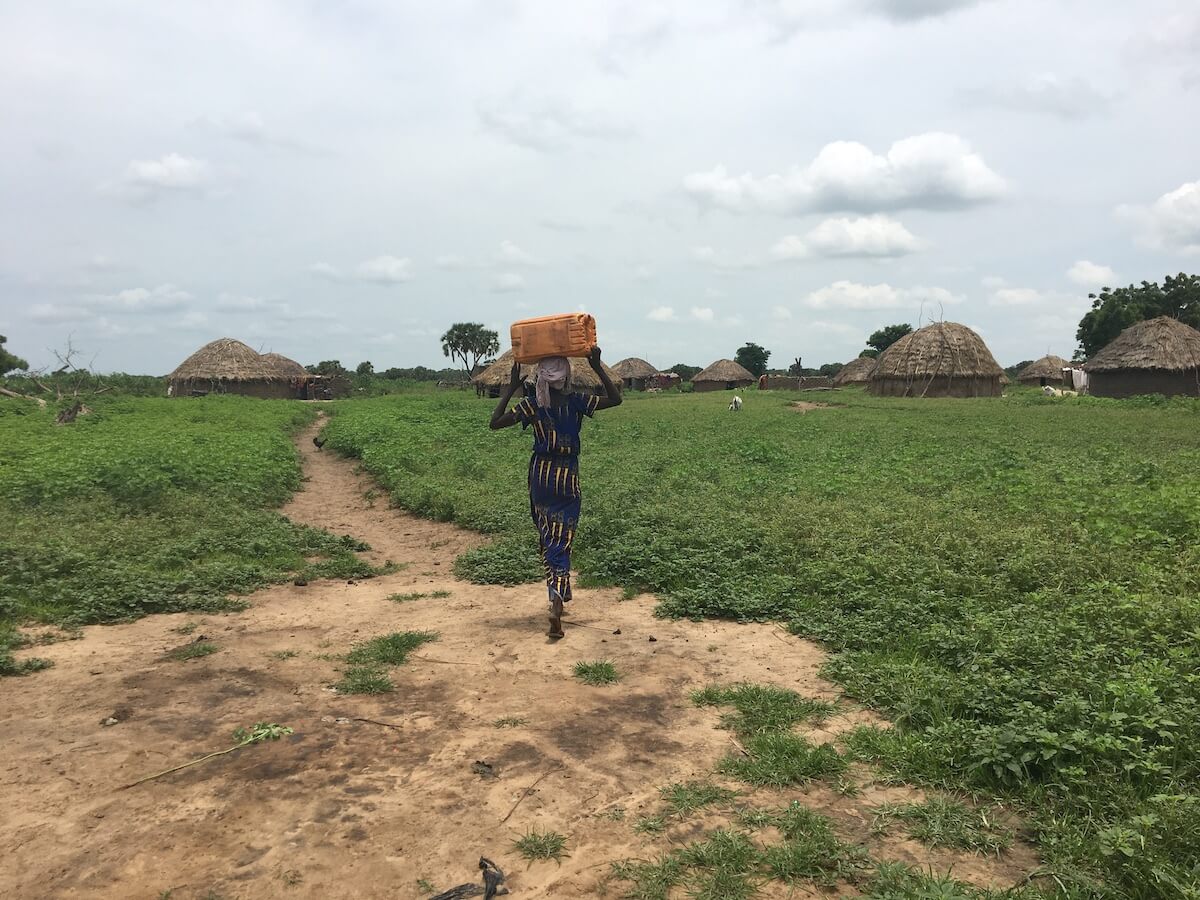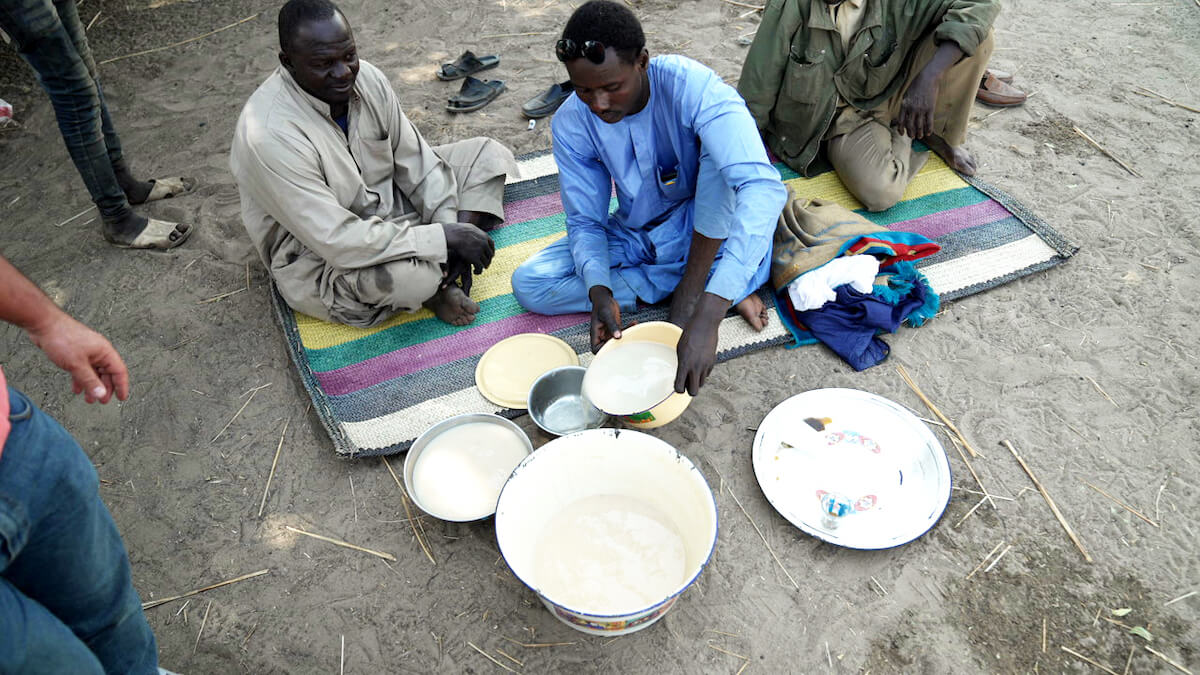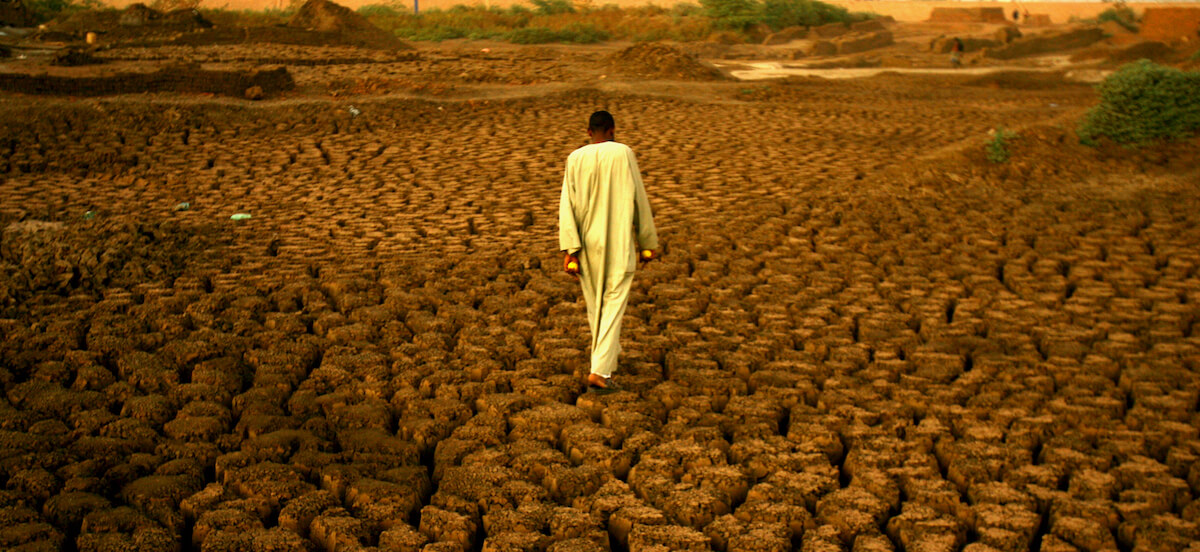Summary
- Climate change affects the availability and quality of water all over the world.
- Sub-Saharan Africa, where available clean water resources are already stretched, is poised to become even more vulnerable.
- We all must think about long-term, sustainable solutions to ensure that people have the water they need to survive and thrive.
- Embrace Relief is striving to accomplish this by building water wells in the African countries of Chad, Cameroon, Nigeria and Tanzania, an important step in mitigating some of the worst effects of climate change.

Embrace Relief is striving to accomplish this by building water wells in the African countries of Chad, Cameroon, Nigeria and Tanzania, an important step in mitigating some of the worst effects of climate change.
One of the most visible effects of climate change on water availability in sub-Saharan Africa is the shrinking of Lake Chad. The lake, which borders Nigeria, Chad, Cameroon, and Niger, has lost 90% of its volume since the 1960s. This has had severe consequences for the millions of people who rely on the lake for fishing, agriculture, and drinking water. As the lake has shrunk, conflicts have erupted over access to the remaining water resources, leading to displacement and even violence.
This is only the most prominent example of the clean water crisis that worsens as climate change accelerates. Clean water is a vital, precious resource that allows human civilization to thrive – to stay healthy, to grow our food, to trade and produce. Protecting our water supply from the effects of climate change is crucial.
The effects of environmental factors on water quality
In addition to affecting water availability, environmental factors also have an impact on water quality. In sub-Saharan Africa, millions of people who formerly sourced their water from Lake Chad now must turn to other sources, such as rivers, lakes, ponds, and rainwater-filled ground holes. These unprotected water sources can become contaminated with pollutants such as chemicals, heavy metals, and dangerous bacteria. Poor sanitation practices and inadequate waste management also contribute to the degradation of water quality.
One of the most significant water quality issues in sub-Saharan Africa is the prevalence of waterborne diseases. According to the World Health Organization, diarrheal diseases are the second leading cause of death among children under 5 in the region. These diseases are often caused by drinking contaminated water or eating food that has been washed with contaminated water. In addition to causing illness and death, waterborne diseases also contribute to poverty by reducing productivity and increasing healthcare costs.
To mitigate the impacts of climate change and environmental factors on water availability and quality in sub-Saharan Africa, a multi-faceted approach is needed. This approach should include measures to increase water availability, improve water management practices, and promote sustainable agriculture.

Mitigating the impacts of climate change and environmental factors
In the area around Lake Chad, a water well can accomplish all of these. Though Lake Chad itself continues to shrink, the underground aquifers that feed into the lake continue to have an abundant supply of clean water. Investing in a water well, which can be operated with a simple, safe hand pump, ensures that the supply of water is steady and reliable, even if the region is suffering from drought. If built correctly, a water well is also an important way to manage the safety of a water supply. It is crucial to install pipes that reach deeper into the ground, to avoid surface contaminants which can seep several meters into an aquifer.
Another strategy is to promote rainwater harvesting, which involves collecting rainwater and storing it for later use. This technique can be particularly effective in other parts of sub-Saharan Africa with limited access to surface water sources.
Improving sanitation practices and waste management can also have a significant impact on water quality. This can be achieved through the construction of latrines, the promotion of handwashing, and the implementation of waste collection and disposal programs. Additionally, promoting the use of water treatment technologies such as chlorine tablets and ceramic filters can help to reduce the prevalence of waterborne diseases.
Clean water is essential for life, but it is becoming increasingly scarce in many parts of the world, especially in sub-Saharan Africa. Climate change and environmental factors are contributing to the problem, but there are solutions that can help to mitigate their impacts. By increasing water storage, improving water management practices, promoting sustainable agriculture, and improving sanitation and waste management, we can ensure that everyone has access to clean water, no matter where they live.

Help Embrace Relief make clean water accessible in Africa!
With the help of Embrace Relief, you can make this world a reality. Since 2013, Embrace Relief has been building water wells to lift communities across sub-Saharan Africa. Through our Clean Water Initiative and Fountains of Hope project, and thanks to the support of donors like you, we have been able to construct or rebuild more than 760 water wells across the countries of Chad, Cameroon, Nigeria, and Tanzania. These wells are currently providing life-giving clean drinking water to more than 760,000 people, and will continue to do so thanks to Embrace Relief’s guarantee to never abandon our wells. Read all about Embrace Relief’s water wells by clicking here.
Quick Donation
Donate today to Embrace Relief’s Clean Water Initiative or Fountains of Hope project and you can help us move one step closer to solving the clean water crisis in Africa. A donation of any amount would be a gift that will impact thousands of people for years to come.
* $1,300 will ensure the reconstruction of a water well – in your name (or any name you wish!) in Africa. *






















